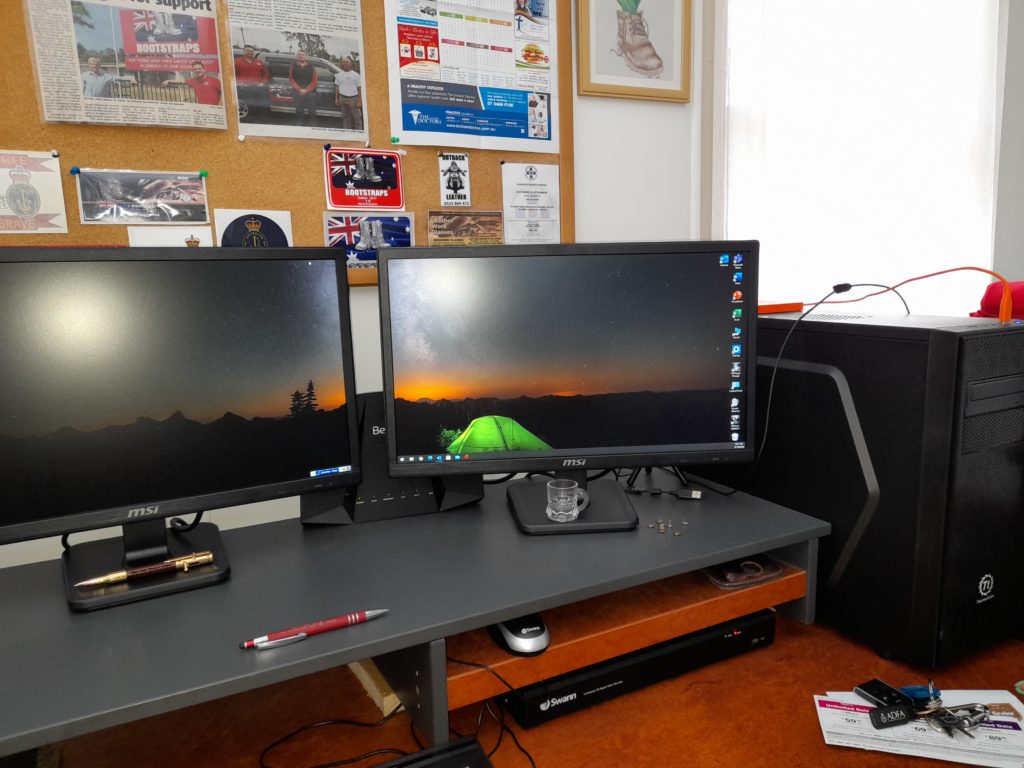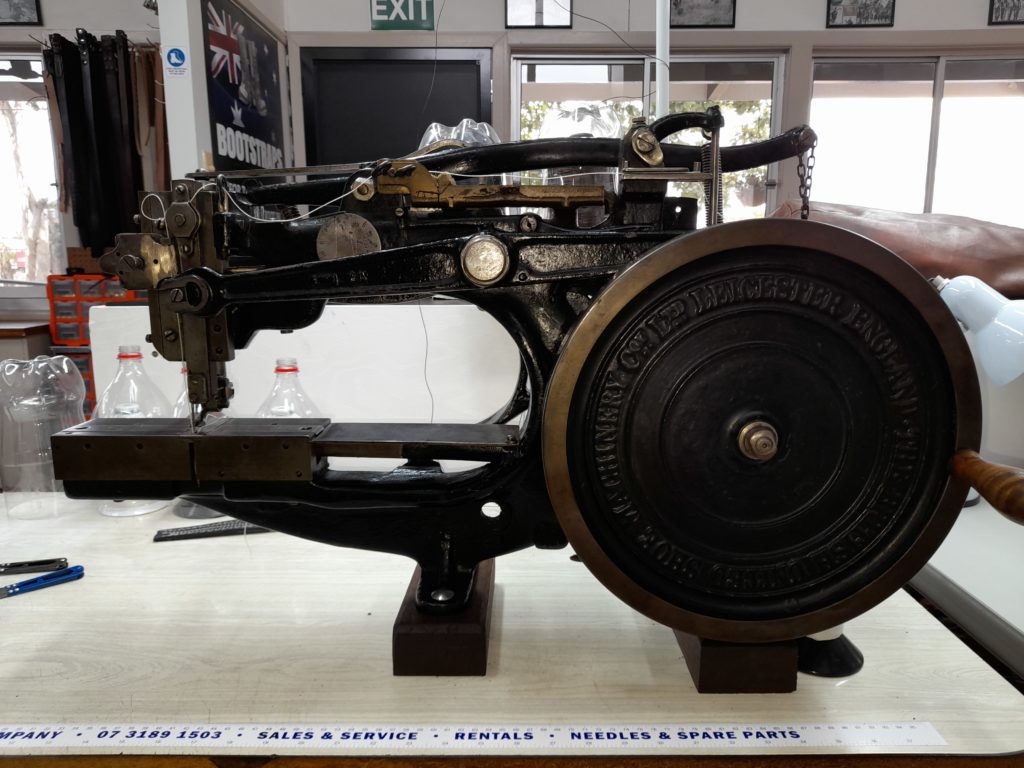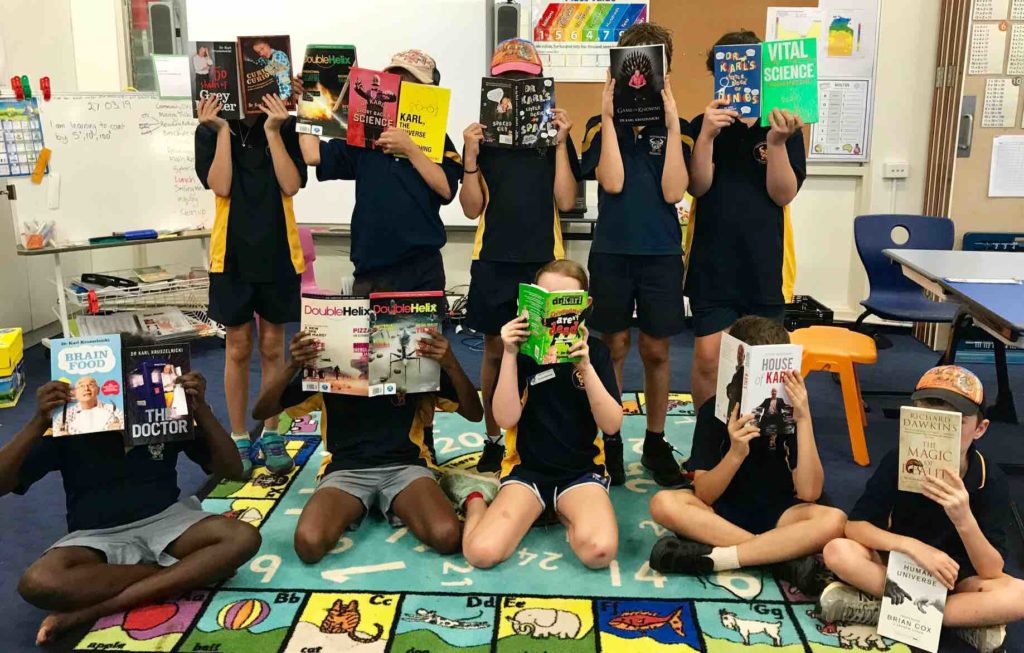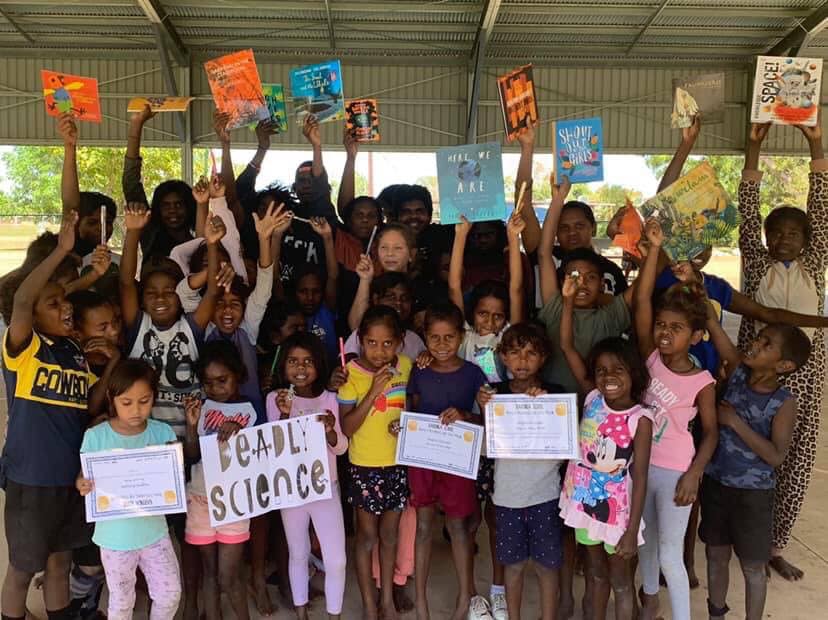Foundation for Rural & Regional Renewal (FRRR)

An innovative program drawing on the personal experience of its founder’s family is making an impact on veterans and current service personnel in Queensland’s Lockyer Valley.
Bootstraps is a volunteer-operated charity that runs a drop-in recovery centre for former service personnel who may be having difficulties connecting with family or society at large. Given the proximity of the RAAF Base at Amberley, Army Aviation at Oakey and Signals Regiment at Cabarlah, and with RSL Sub-Branches dotted through the Lockyer Valley, the organisation is well-located to offer this support.
President and founder of Bootstraps, Sam Kavanagh, was taught leatherworking by his father, who was in the air force and practised this craft as a kind of therapy. Building on this, as part of its offering, Bootstraps runs a leatherworking program to facilitate reconnection and social interaction. Ex-service personnel, current serving personnel and their families take priority, but space allowing, the program is open is open to anyone in the community.
The organisation needed some equipment to deliver the program and applied to FRRR for funding for an industrial leather sewing machine and a new computer, which they received in the form of a $5,407 Strengthening Rural Communities grant, funded by The Sylvia & Charles Viertel Charitable Foundation.
The computer replaced a small inefficient laptop and enhances the organisation’s day-to-day communications and planning, while the sewing machine supports every level of the Bootstraps leatherwork training program. The model chosen is capable of being hand-cranked, which facilitates use by veterans with lower limb disabilities in particular, and those confined to a wheelchair.
The grant application noted, “There are not many (if any) families in the Lockyer Valley that do not have a military and/or a horse connection that could benefit from the leatherwork activities run by Bootstraps.”

At the time of reporting, Bootstraps noted that more than 250 patrons have used the Bootstraps facilities, including the new leather sewing machine. The new IT facilities have meant better access and clearer information is available to the public about the program, via a more responsive and efficient website and communications.
These important pieces of equipment will help the program’s participants further their craft, while enabling social connection and helping veterans and the general community remain in a good head-space.

Did you know that some schools in remote Australian communities might have as few as 15 books in their library?
That discovery in 2017 prompted Corey Tutt to start sourcing and supplying resources himself, initially from his personal library. DeadlyScience Limited was established in 2020, and is now a registered charity. Through DeadlyScience, Corey is seeking to inspire a new generation of scientists.
It focuses on providing Science, Technology, Engineering, and Mathematics (STEM) and early learning reading resources to remote Australian schools to help increase engagement.
The initial priority is schools with a high proportion of Indigenous children. Where possible, and appropriate, DeadlyScience sources materials from Indigenous authors, artists, and translated versions in Indigenous languages. In the three and a bit years since inception, DeadlyScience has had more than 110 schools requesting resources.
They have delivered more than 16,000 books, 500 telescopes (and basic science kits), 80 educational resources and six greenhouses (plus seeds, and educational materials to support food production projects) to more than 100 Australian schools and/or communities.
This growth looks set to continue as the organisation gains more momentum and profile. Another key activity involves maintaining a website to support teachers in remote schools with access to high quality scientific research and relevant experts in their fields (also of Indigenous background, where possible).

In 2020, DeadlyScience partnered with FRRR to set up a Not-for-Profit Fundraising Account, allowing them to attract tax deductible contributions from a broad range of donors to expand their activities and support the overall capacity and operations.
You can add your support by donate securely online, or check out the DeadlyScience website to learn more about their work.
To learn more about opening a Not-For-Profit fundraising account, get in touch with Jo Kemp.
Storytelling is a vital part of Aboriginal and Torres Strait Islander culture, allowing beliefs and concepts to be passed on through generations. JUTE Theatre Company (JUTE) uses theatre performance and workshop participation to present professional role models and positive stories about a range of Indigenous experiences and possible futures.
Founded in Cairns in 1992, JUTE helps Indigenous students feel valued and connected, by letting them see their cultures and stories represented on stage. There are also longer-term benefits in employment and post-school options for young Indigenous people. Since the beginning of its Dare to Dream program, JUTE has impacted over 6,000 young people and community members in remote parts of North Queensland with more than 3,600 young people taking part in skills development workshops.
With the support of a $15,000 ANZ Seeds of Renewal grant, JUTE was able to take its 2019 show, The Longest Minute, to 10 North Queensland schools in Lockhart River, Bamaga, Mapoon, Mossman, Ravenshoe, Yarrabah, Mt Isa, Doomadgee and Cloncurry – all very remote locations with significant numbers of Indigenous students. The Longest Minute is a story about the 2015 National Rugby League Grand Final, won by local heroes, North Queensland Cowboys in a nail-biting finish.
The funding helped JUTE refine its school program to meet a broad range of needs across artists and facilitators, community, schools and students.
“It was fantastic,” said one of the Mapoon teachers. “The acting was incredible, and it offered our students an opportunity to see successful Indigenous people who are proud of their identity performing at their best. This is something we don’t have easy access to, being so remote.”

